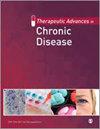乌干达古卢市古卢地区转诊医院胰岛素无效的 2 型糖尿病患者开始胰岛素治疗的意愿
IF 2.8
3区 医学
Q2 PHARMACOLOGY & PHARMACY
引用次数: 0
摘要
背景:大多数 2 型糖尿病(DM2)患者在患病期间都需要使用胰岛素来控制血糖。目的:我们评估了乌干达北部城市中胰岛素无效的 DM2 患者开始胰岛素治疗的意愿。设计:2023 年 6 月至 8 月期间,我们在乌干达古卢地区转诊医院开展了一项基于设施的定量横断面研究,招募胰岛素无效的 2 型糖尿病患者接受常规医疗护理。方法:我们通过询问 "如果医生为您开具胰岛素处方,您是否愿意使用?结果:我们共招募了 190 名参与者,平均年龄为 55 ± 12.72 岁。大多数参与者为女性(63.7%,n = 121),受过初等教育(70.0%,n = 133),失业(84.2%,n = 160)。总体而言,73.4%(138 人)的参与者愿意在有指征的情况下接受胰岛素治疗。最近被建议使用胰岛素的参与者愿意接受胰岛素治疗的比例高出 34% [调整后患病率比(aPR):1.34,95% 置信区间(P<0.05)]:1.34,95% 置信区间(CI):1.06-1.72,p = 0.007],而病程在 6 年或 6 年以上的参与者的意愿则低 43%(aPR:0.57,95% CI:0.39-0.81,p = 0.结论:大约每四名 DM 患者中就有三人愿意在有指征的情况下接受胰岛素治疗。然而,医疗服务提供者应考虑采取个性化的咨询策略,以减轻患者的顾虑,并加强有关胰岛素使用的知情决策。未来的干预措施应重点解决与病程长和对胰岛素治疗的担忧有关的具体障碍,以优化该人群的血糖控制。本文章由计算机程序翻译,如有差异,请以英文原文为准。
Willingness to start insulin therapy among insulin-naïve persons with type 2 diabetes mellitus at Gulu Regional Referral Hospital, Gulu City, Uganda
Background:Most patients with type 2 diabetes mellitus (DM2) will require insulin for glycemic control during their disease.Objectives:We evaluated the willingness to start insulin therapy among insulin-naïve persons with DM2 in urban Northern Uganda.Design:A facility-based, quantitative, cross-sectional study was conducted between June and August 2023 recruiting insulin-naïve type 2 diabetes mellitus patients attending routine health care at Gulu Regional Referral Hospital, Gulu, Uganda.Methods:We gauged participants’ willingness to use insulin by asking, ‘If your doctor prescribed insulin for you, would you accept to use it?’ with responses categorized as either ‘Yes’ or ‘No’. Poisson regression analysis was performed to assess the factors associated with willingness to start insulin therapy. p < 0.05 were considered statistically significant.Results:We enrolled 190 participants, with a mean age of 55 ± 12.72 years. Most participants were female (63.7%, n = 121), attained a primary level of education (70.0%, n = 133), and were unemployed (84.2%, n = 160). Overall, 73.4% ( n = 138) of the participants were willing to receive insulin therapy if indicated. Participants recently advised on insulin showed a 34% higher willingness [adjusted prevalence ratio (aPR): 1.34, 95% confidence interval (CI): 1.06–1.72, p = 0.007], whereas those with a disease duration of 6 years or more were 43% less willing (aPR: 0.57, 95% CI: 0.39–0.81, p = 0.002) and those concerns about coping with insulin therapy were 55% less willing to commence insulin therapy (aPR: 0.57, 95% CI: 0.39–0.81, p = 0.002).Conclusion:About three in every four participants with DM were willing to receive insulin if indicated. However, healthcare providers should consider personalized counseling strategies to alleviate concerns and enhance informed decision-making regarding insulin initiation. Future interventions should focus on addressing specific barriers associated with prolonged disease duration and apprehensions related to insulin therapy to optimize glycemic control in this population.
求助全文
通过发布文献求助,成功后即可免费获取论文全文。
去求助
来源期刊

Therapeutic Advances in Chronic Disease
Medicine-Medicine (miscellaneous)
CiteScore
6.20
自引率
0.00%
发文量
108
审稿时长
12 weeks
期刊介绍:
Therapeutic Advances in Chronic Disease publishes the highest quality peer-reviewed research, reviews and scholarly comment in the drug treatment of all chronic diseases. The journal has a strong clinical and pharmacological focus and is aimed at clinicians and researchers involved in the medical treatment of chronic disease, providing a forum in print and online for publishing the highest quality articles in this area.
 求助内容:
求助内容: 应助结果提醒方式:
应助结果提醒方式:


